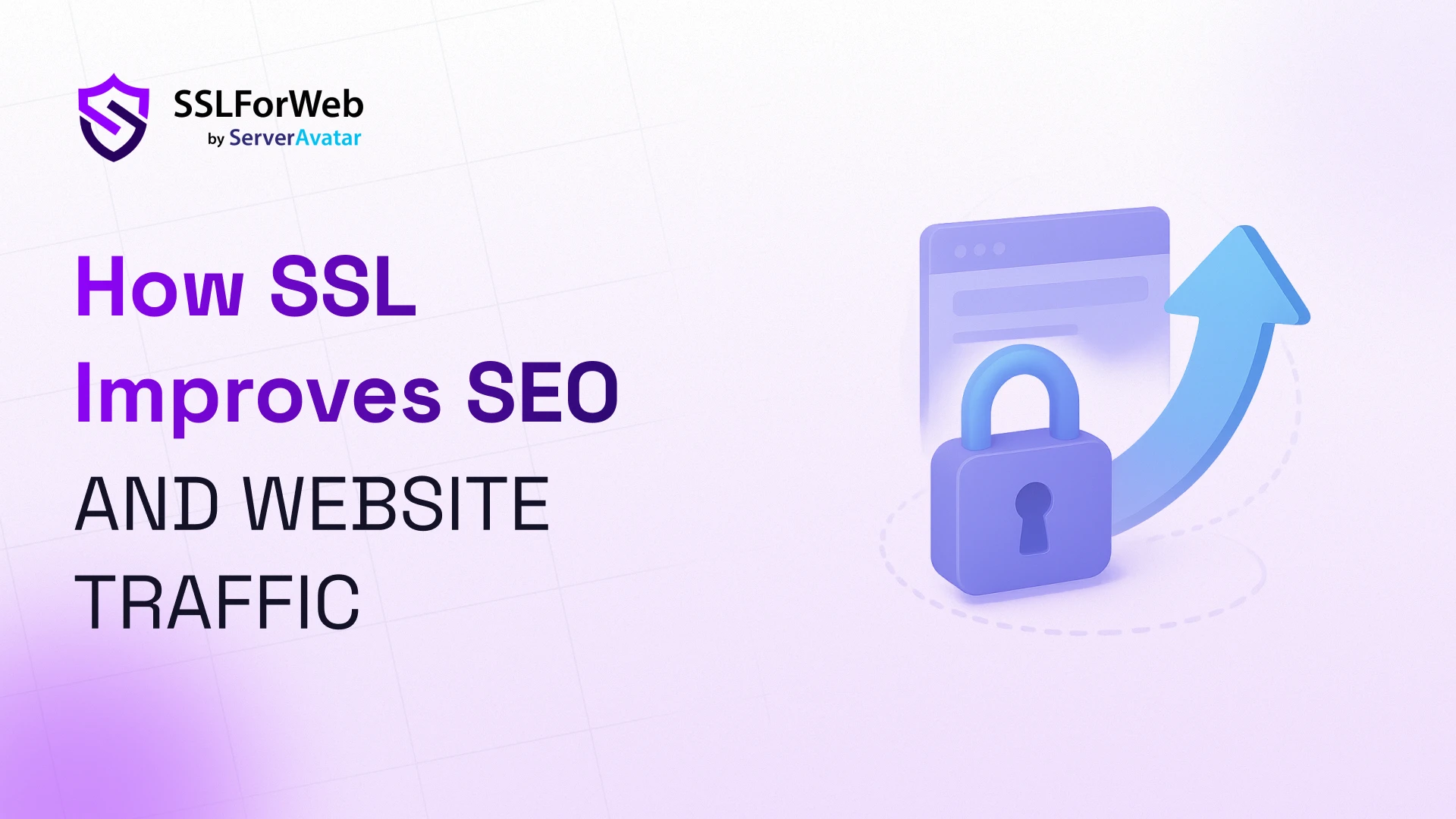SSL Improves SEO and the internet is no longer the wild west it was before. Today, security is one of the biggest concerns for both website owners and visitors. Whether you’re running a personal blog, an e-commerce store, or a corporate website, one small detail could make or break your online growth: SSL Certificate (Secure Sockets Layer).
You might already know that SSL certificates encrypt data between your server and visitors, but did you know that they can also boost your SEO and website traffic? In fact, SSL is not just about securing your website, it’s also about gaining trust, ranking higher on Google, and driving more clicks.
In this article, we’ll dive deep into how SSL improves SEO and website traffic, why it’s a must-have, and how you can implement it for the maximum impact.
What is SSL and Why Does It Matter?
SSL, short for Secure Sockets Layer, is technology that encrypts connection between website and its visitors. When site has SSL, you’ll notice little padlock icon in browser’s address bar and URL starting with https:// instead of http://
Here’s why SSL matters:
- Data Encryption: Protects sensitive information like passwords, credit card numbers, and personal data.
- Authentication: Ensures users are communicating with real website, not impersonator.
- Trust Building: Visitors feel safe, which increases engagement and conversions.
But security isn’t only benefit. Google officially announced in 2014 that HTTPS is ranking factor, which means SSL has direct effect on your SEO.
SSL as a Google Ranking Factor
When Google first introduced HTTPS as ranking signal, it was considered as “lightweight” factor. However, in recent years, as cybersecurity threats increased, Google has placed even more emphasis on secure websites.
- Websites with SSL often outrank those without it.
- Google Chrome labels non-HTTPS sites as ‘Not Secure‘, which discourages users from visiting.
- Secure websites get slight SEO advantage, helping them compete better in crowded niches.
In other words, if your competitor has SSL and you don’t, you’re already at disadvantage.
How SSL Increases Click-Through Rates (CTR)
SEO isn’t just about ranking, it’s also about how many people actually click on your website. SSL plays a role here too.
Imagine searching for product on Google. You see two websites:
- Site A: HTTPS with padlock icon.
- Site B: HTTP with warning that says ‘Not Secure’.
Which one are you more likely to click?
Most users instinctively trust secure sites. As result, websites with SSL certificates see higher CTRs, which sends positive signal to Google and can improve rankings even further.
SSL Improves SEO, User Trust and Engagement
Modern internet users are cautious. They want to know their data is safe before they:
- Fill out form
- Subscribe to a newsletter
- Enter payment details
- Download a resource
If your site doesn’t have SSL, users may bounce quickly, which increases your bounce rate. A high bounce rate tells Google that your website isn’t meeting user expectations, which can hurt your SEO.
On the other hand, SSL creates a sense of trust, encouraging visitors to stay longer, engage more, and convert, factors that indirectly boost your rankings.
SSL Boosts Local SEO Rankings
For businesses that rely on local customers, SSL is even more important. Local SEO depends on trust, credibility, and visibility. Secure websites are more likely to:
- Rank higher in Google Maps and local packs.
- Gain trust from local users searching for services.
- Convert local visitors into paying customers.
If you’re local business, SSL is not optional, it’s essential.
How to Implement SSL Correctly
Installing SSL is easier than ever. SslForWeb provides free SSL certificates for your websites. You can easily generate SSL Certificate using SslForWeb.

Here are few tips to implement SSL correctly:
- Redirect all HTTP URLs to HTTPS using 301 redirects.
- Update internal links to HTTPS.
- Check for mixed content issues (HTTP resources on an HTTPS page).
- Verify your HTTPS site in Google Search Console.
Done right, this ensures your SSL migration boosts SEO instead of causing issues.
Free Automatic SSL with Auto-Renewal by ServerAvatar
ServerAvatar is platform to simplify hosting and management of servers and applications. It simplifies the process of deploying and managing PHP and Node.js-based web applications on servers. If you’re using ServerAvatar to host your sites, you don’t need to worry about manual SSL renewal at all.

ServerAvatar provides free automatic SSL certificates with auto-renewal for your sites.

For website owners who want peace of mind, using ServerAvatar is the perfect for security, automation, and reliability.
Common Mistakes to Avoid with SSL
Even though SSL is straightforward, many site owners make mistakes that hurt their SEO:
- Forgetting to set up proper redirects.
- Leaving mixed content (like images or scripts) unsecured.
- Not renewing the SSL certificate, leading to “certificate expired” warnings.
- Installing SSL but not updating sitemap or canonical tags.
Avoiding these mistakes ensures your SEO gains from SSL are long-term.
Frequently Asked Questions (FAQs)
1. Does SSL really improve SEO rankings?
Yes. While SSL alone won’t push you to the top of search results, it is a confirmed Google ranking factor. It also helps improve user trust and engagement, which indirectly benefits SEO.
2. Can I get SSL for free?
Absolutely. You can get free SSL certificates from SslForWeb or ServerAvatar with auto-renewal.
3. How does SSL affect website traffic?
SSL increases click-through rates (CTR) because users prefer to visit secure websites. It also reduces bounce rates by making visitors feel safe, which leads to more traffic and higher engagement.
4. Is SSL important for small businesses and local SEO?
Definitely. SSL is crucial for local SEO because it boosts credibility, increases trust with local visitors, and helps secure better rankings in Google Maps and local search results.
5. What are common mistakes when setting up SSL?
Common errors include failing to redirect HTTP to HTTPS, leaving mixed content unsecured, not updating internal links, and letting SSL certificates expire. Avoiding these mistakes ensures SEO benefits remain intact.
Conclusion
In today’s digital world, SSL is more than just security feature; it’s key driver of SEO success and website growth. By securing your site with SSL, you not only protect your visitors’ data but also gain trust, improve search rankings, and drive more organic traffic.
Whether you run personal blog, e-commerce store, or local business, SSL is no longer optional. With free SSL options available from SslForWeb and automated SSL management through ServerAvatar, there’s no reason to delay implementation.
In short, SSL helps you rank better, attract more visitors, and keep them engaged, making it one of the simplest yet most effective steps you can take for long-term website success.



